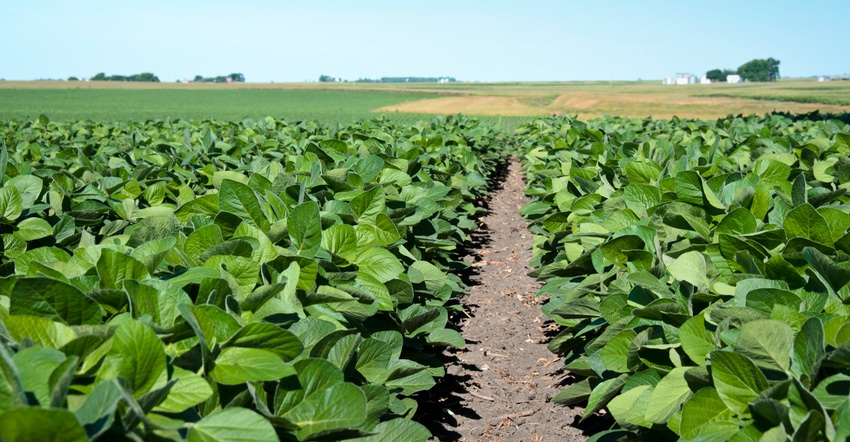
The plant-based protein market is expanding to the tune of more than $100 billion in market value this decade, and food tech company Benson Hill plans to grow with it.
The St. Louis-based crop improvement company announced last week the purchase of another manufacturing operation, ZFS Creston LLC, for its ultra-high-protein food-grade soybeans. This Iowa plant adds to the company’s 2021 purchase of a soybean crushing facility from Seymour, Ind.-based Rose Acre Farms.
“Bringing on Creston perfectly fits our playbook for growth and enables a tremendous step forward to meet these growing market demands,” Benson Hill CEO Matt Crisp says. “It brings food-grade white flake and flour production capacity online within Benson Hill’s control that would otherwise require third-party tooling and investment. Immediate access to this capacity is expected to accelerate our ability to produce and commercialize our ingredient portfolio for the broader human food market.”
Combined, the two plants allow Benson Hill to reach the production capacity necessary to deliver its products not only through capacity, but also by increasing its acreage reach, Crisp says. The company needs 250,000 to 500,000 acres to drive crop and ingredient production efficiencies.
“The capacity of Creston enables us to significantly increase the processing of our proprietary soy varieties, and to do so across an even more diverse growing region that corresponds well with the strength of our soy genetics,” he adds.
About the processing plant
ZFS Creston processes soybeans into soy flour, soy white flakes and soy grits, as well as soybean meal, hulls and oil. The facility is FoodChain ID and non-GMO Project certified and already has a non-GMO soybean grower base, according to the company website.
The soybean plant has been a staple in this southwest Iowa community since 1998 when Creston Bean Processing LLC built the original plant. Over the years, it changed ownership to DeBruce Grain Inc. and then to CHS.
It was with CHS that the construction of the state-of-the-art flour mill attached to the soy processing plant brought about the processing of soy into flour, white flakes and grits. In 2018, ZFS Creston purchased the plant and continued upgrading the processing at the plant.
The plant is in a key growth area for Benson Hill, being ideally located in the nation’s second-largest soybean-producing state. And farmers are buying into the Benson Hill model.
According to Crisp, the company is coming off a successful 2021 harvest of identity preserved non-GMO soybeans where farmer-partners are already requesting to grow 20% more acres in 2022. This purchase is a strategic move to improve efficiencies by securing processing near production with the possibility of expansion in the region.
New opportunities for soy
Bruce Bennett, president of ingredients at Benson Hill, says it will take all of the production to meet the needs of the company and the marketplace.
“Today there's a significant shortage of high-quality protein ingredients across the plant-based protein market,” he explains. “Customers recognize this and are engaging with us to understand how our powerful portfolio can help them meet consumer demand.”
The Creston plant, according to Bennett, is “one of the few plants in the U.S. equipped to produce food-grade soy white flake and flour.” These products are marketed as ingredients or as raw material for further production of concentrates, isolates and textured protein.
“The Creston plant opens the door to markets that include plant-based meat substitutes, as well as other categories like baking, cereals, snacks, meat extension and fermentation,” Bennett explains. Therefore, we can execute our portfolio approach with the plant-based protein category and leverage our proprietary soybeans across both value-added proteins and specialty oils.”
And the transition starts in the 2022 growing season.
This year, the company will absorb some of the production of Creston’s production capacity with Benson Hill soy varieties, which will produce products under the company’s brands for plant-based ingredients, aquaculture and specialty oil markets, Crisp says. “The remainder of the plant’s capacity will be used to continue serving a strong customer base.”
For Crisp, it is about adding value to the soybean seed. He says that there are opportunities for farmers in the food-grade business. And Bennett agrees.
“We now have two facilities to enable our integrated business model that gives us the capability and flexibility to go after the rapidly growing plant-based protein and specialty oils opportunities in human food, pet food and other markets,” Bennett says.
About the Author(s)
You May Also Like






